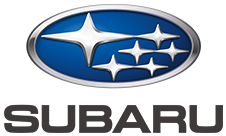SUBARU Group’s Six Priority Areas for CSR TOPIC: Compliance
Why It Is Important to Us
Having reflected on the previous lack of awareness of social norms in the execution of our duties, flaws in our internal rules, and the inadequate understanding of laws and regulations relevant to our operations, SUBARU is keenly aware of the need to change ways of thinking and completely change the culture. SUBARU will dedicate the whole of the SUBARU Group to promoting initiatives focused on compliance as a priority, with the aim of ensuring that SUBARU resonates with and inspires trust in our customers and all other stakeholders.
Compliance and human rights initiatives considered and implemented by each individual
We, the SUBARU Group, will act in good faith toward our aspiration to be a company “delivering happiness to all,” aiming to be a corporate group that is trusted by and resonates with society
Each individual is responsible for practicing compliance
At the SUBARU Group, compliance is positioned as one of the most important management issues. Here, our initiative policy is to: (1) deepen dialogue with everyone and promote the Think Compliance initiative; (2) Maintain awareness of being one member of the SUBARU Group, unbound by organizational frameworks; and (3) Act with consideration for others and a positive attitude of doing good. In executing these, we establish and operate a compliance system and organization, as well as conduct activities such as providing various kinds of training.
Initiatives toward Deeper Compliance
SUBARU conducts compliance training, training for legal affairs in practical businesses, and other programs for Group employees in Japan to enforce thorough compliance across the Group. In particular, more than 15,000 employees have participated in video-based online training programs introduced to adapt to work format changes due to the COVID-19 pandemic. This is part of our work to improve compliance literacy for all employees working at SUBARU and Group companies in Japan, helping each employee to take ownership and execute the Think Compliance initiative.
In order to promote daily practice for each and every Group employee in Japan, we issue the Compliance Manual and have created guidelines specialized for affiliated companies, providing these and a range of other implementation support tools. Specifically, we have established guidelines on anti-bribery for the entire Group clarifying the conduct required of employees and executives. This includes the establishment of the company-wide Bribery Prevention Rules, which clarify prohibited and non-prohibited acts when dealing with public officials. Also, anti-bribery is identified as an important issue in the Compliance Manual (Japanese and English versions) issued to affiliated companies in Japan and overseas. We not only require proper conduct regarding bribery of public officials but also pursue thorough fairness in transactions with private-sector customers and partners.
Monitoring Mechanisms
The entire SUBARU Group collects information to ascertain the presence of cases that may constitute compliance violations through company-wide compliance activities, its whistleblowing system, and other channels. It also strives to use actions like the Internal Audit Department’s business audits to detect cases early. High-risk cases are reported to the Risk Management and Compliance Committee and the Board of Directors, in efforts to further strengthen oversight. Specifically, SUBARU has established the Compliance Hotline system, where regular or temporary employees of the SUBARU Group who have detected a problem related to compliance within the Group can consult with the Hotline Desk. This Desk is where employees affiliated with the Risk Management and Compliance Office directly receive mail, telephone calls, and email, investigate facts, and provide response. In the Compliance Hotline system, we provide consultation services in four languages (English, Chinese, Portuguese, and Spanish) for foreign workers. In addition, to ensure thorough awareness, including among foreign workers, we distribute cards containing information on the framework of the system and the contact address for consulting services not only in Japanese but also English, Chinese, and other languages. We also put up posters in all workplaces. Actual consultations are handled swiftly and flexibly, primarily by the Risk Management and Compliance Office Manager, working toward preventive measures.
Subaru of America, Inc. (SOA) also operates a compliance hotline system. Like in Japan, a third-party organization is used for the reporting desk so that employees can consult and report with peace of mind. Reports are accepted through a number of channels, including in person, by phone, and by email.
Initiatives for Human Rights: Human Rights Due Diligence
At the SUBARU Group, we put people first and engage in people-oriented manufacturing. For us, respect for the rights and characteristics of individuals is an important management issue. From FYE March 2021 to FYE March 2022, we carried out human rights due diligence in accordance with the procedures stipulated in the United Nations Guiding Principles on Business and Human Rights. Specific initiatives included the identification and impact assessment of human rights risks in the domains of human resources and procurement, and the identification of particularly key risks for the SUBARU Group. The human rights risks identified in each of these areas include risks related to compliance, and we have formulated measures to prevent and mitigate these risks. These are agreed upon by the Sustainability Committee and reported to the Board of Directors. Going forward, we will continue to work toward risk mitigation by steadily implementing formulated measures to combat them, regularly providing progress reports on these to the Sustainability Committee, and through other actions.
Particularly key human rights risks
| Human resources domain |
Long working hours, occupational accidents, harassment of workers, forced labor among foreign workers |
|---|---|
| Procurement domain | Human rights violations among suppliers, responsible mineral procurement (e.g., conflict minerals, cobalt), harassment of suppliers |


